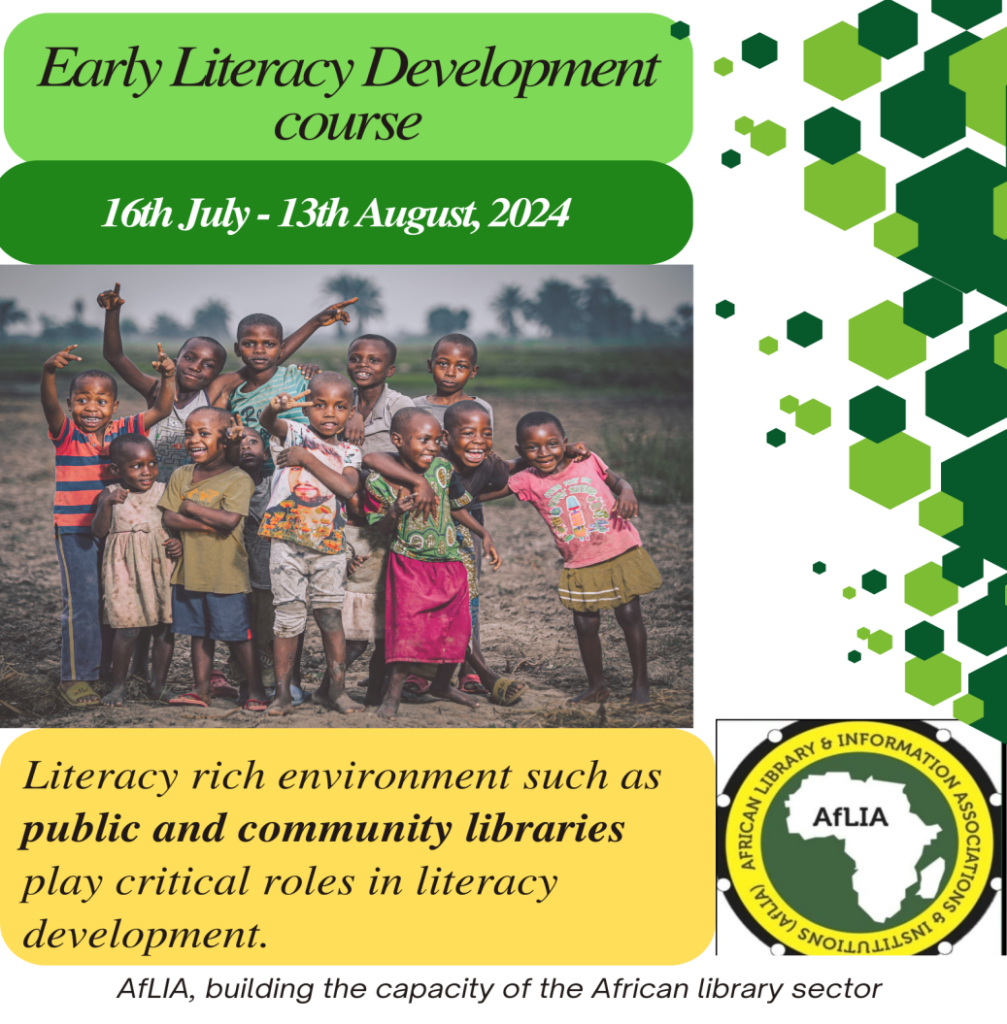Call for Participation: Early Literacy Development Course (ELDC) Cohort 4

Early childhood is a critical time for development. According to UNICEF, ‘in the first few years of life, more than one million neural connections are formed each second – a pace never repeated again.’ When the building blocks for literacy skills are laid early for children, they develop a solid foundation for learning to learn, self-efficiency and reflective skills needed to navigate the world of knowledge. Literacy development is a crucial aspect of the overall development for children. Literacy rich environment such as public and community libraries can play critical roles in leading children to fall in love with reading and learning as part of early literacy development as they provide literacy experiences for children before they start school. These experiences can form and shape powerful connections between books, pleasure, and learning in children’s brains.

AfLIA invites public and community library staff to participate in the 4th Cohort of the Early Literacy development course. The course is designed to lead library staff that work with children into understanding how to make the most of story hour and other early literacy programmes at the library, as well as how the look and feel of a library can aid in a child’s early literacy development.
Importantly, AfLIA’s course on Early literacy development provides pathways for African public and community libraries to understand the potentials of open licensing, create as well as have access to openly licensed resources in African local languages that are suitable for children. This is critical for most African children who learn to speak first in their different mother tongues and then get introduced to the official language of learning when they start formal education.
The virtual course will run from 16th July – 13th August, 2024 with a 90mins live session once a week, online interactions on the learning platform with librarians across Africa, and practical assignments that will lead participants to;
- Gain new ideas and explore activities that will help to develop children’s pre-reading skills,
- Understand the skills children need to learn to become confident readers and writers,
- Familiarize themselves with some methods that can be used to help children who are
learning to read, or who are struggling with their reading, - Understand core principles of open licensing and work on how to improve the mother tongue language resources in their libraries,
- Find out what the children in their library already know and where they are in their reading and writing journey,
- Understand what emergent literacy is and how important it is to create a learning environment for children of all ages and think innovatively about the different ways we can prompt creativity in children,
Registration
Click button below to register and join others from libraries across Africa. Certificates will be awarded to those who participate and to those who perform excellently in the course.
